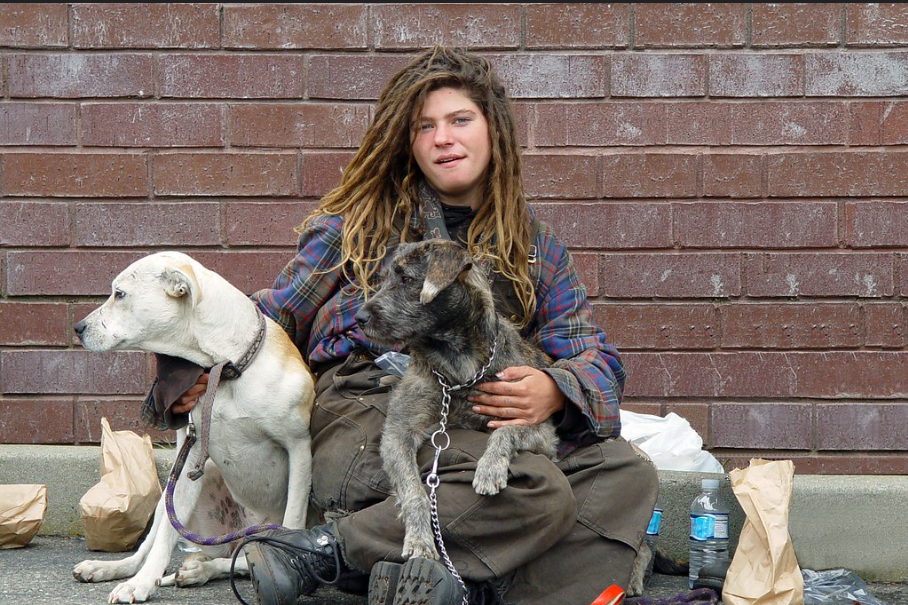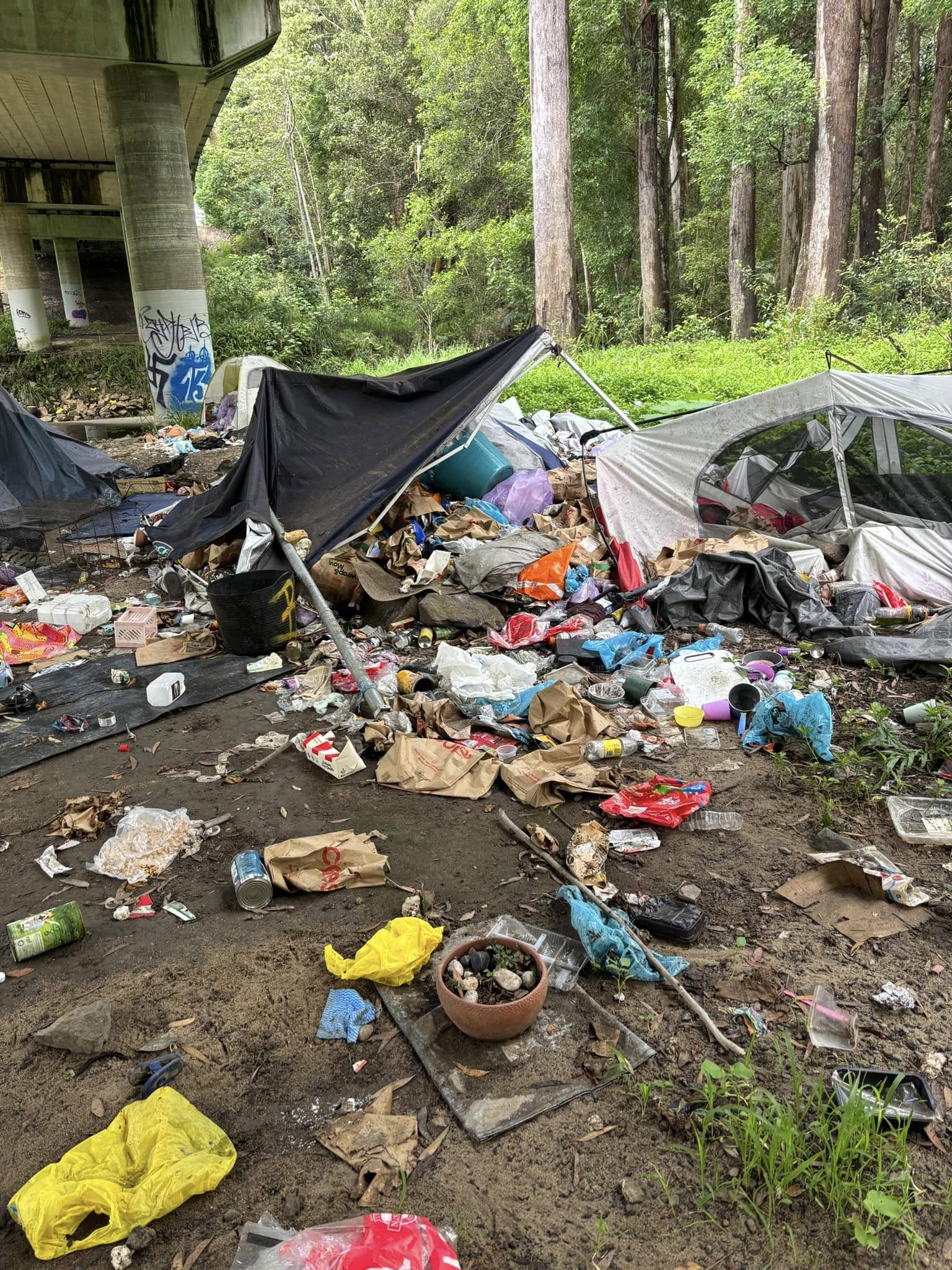News
14 January, 2025
Hot under collar over new pet rule
RSPCA Queensland and Animal Welfare League Queensland (AWLQ) fear more pets will be abandoned amid already record high surrender rates, following the City of Moreton Bay’s new regulations around homeless people keeping pets.

The Council announced The Person’s Experiencing Homelessness Camping Framework on December 12, prohibiting the keeping of animals by all people camping on council land.
Both organisations have now urged council to support alternatives that would help educate homeless pet owners, rather than separate them.
“If the animal is healthy, safe, and not declared dangerous, RSPCA strongly believes that pets should be able to stay with their owners,” RSPCA Qld spokesperson Emma Lagoon said.
“While we always assist in cases of emergency, we have to do our best to manage our animal capacity across the state. Over the past two years, RSPCA Qld has been running a proactive service in Moreton Bay for vulnerable residents, including people experiencing homelessness—offering free veterinary services, preventative treatments, pet food, essentials like bedding, leads and collars, and pet care advice.”
Ms. Lagoon said in the first year of its Community Outreach service in the Moreton Bay region, inspectors reported a 19 per cent reduction in animal welfare complaints reported in the area.
She added that by helping keep people and pets together, it helps prevent animal welfare issues in the future and supports the bond people have with their pets.
AWLQ spokesperson Caroline Esera added that from AWLQ’s experience, “the majority of owners experiencing homelessness with a pet manage them responsibly in the community,” adding the organisation was unaware of homeless pets being more difficult than pets with homes.
“We’re not aware of any data that indicates dangerous dog incidents are more prevalent for homeless people,” she said. “From our experience, we would expect the data to show most attacks or aggressive instances occur where the owner and pet has a home.”
“If there are concerns regarding community safety, these cases should be managed individually, working with and supporting the owner to find a solution. From our experience, homeless people experience the same challenges as owners with accommodation regarding problem pet behaviours. With the cost of living, many owners, including those with accommodation and without, are struggling. Like every owner, it comes down to the individual and their pet.”
Ms. Esera also emphasised that without more outreach programs, these would benefit both the individuals affected and the broader community, ensuring both individuals and their pets are cared for and protected.
Both organisations have emphasised how seizing animals could seriously affect the owners, with many owners relying on their animals to “keep going.”
Without a “compassionate, solutions-focused” approach to the issue, rather than “punitive measures” like prohibiting ownership or fines, pets and owners could face “a significant risk” of emotional trauma or physical harm.
“Without supportive alternatives, these pets could face uncertain futures, including abandonment, surrender to shelters, leading to overcrowding in animal shelters, or potentially being seized and euthanised,” she said.
Some “more compassionate” alternatives to the “punitive” approach of banning pets, suggested by AWLQ, include supporting people in finding stable housing, providing access to pet-friendly shelters, and investing in community outreach programs.
“For many rough sleepers, the bond with their pets is profound, and being forced to choose between keeping their animal or avoiding fines and penalties may lead to heart-wrenching decisions,” Ms. Esera said.
According to the RSPCA, many studies have highlighted the positive impact that pets can have on physical and mental wellbeing, including increased cardiovascular health (lower blood pressure, lower triglycerides and, in men, lower cholesterol), increased physical activity, social skills and social connectedness. Pet owners also report less depression and appear to cope with grief, stress, and loss better than non-pet owners, showcasing how pets are also great caregivers in providing comfort to their owners.
“While some residents may feel that public spaces are more accessible, the displacement of vulnerable individuals could lead to increased visibility of hardship in other areas,” Ms. Esera said.
Here is the revised text with normal sentence lengths, keeping the original content and structure intact:
“These measures may also strain local animal shelters if pets are forcibly separated from their owners. Homelessness is a symptom of broader systemic challenges, and addressing it requires empathy and collaboration. We remain ready to work with councils, including Moreton Bay, to explore strategies that prioritise care and dignity for our most vulnerable.”
The RSPCA receives around 100–200 reports of pets being abandoned every month. For anyone experiencing hardship, please reach out to the RSPCA on their website or by calling the 1300 ANIMAL hotline. More information about the People and Pets program is available at: https://rspcaqld.org.au/what-we-do/working-with-communities/community-outreach.
AWLQ works to support the community and assist with the care of pets owned by homeless people through various measures, including the Homeless Connect initiative and the Pet Food Pantry program.
Member for Pumicestone, Ariana Doolan, has requested a meeting with the Minister for Social Housing, Sam O’Connor, following Mayor Peter Flannery’s call on the State Government to address the issue of homelessness in Moreton Bay, which costs the Council over $2 million per year.
“The changes (by Council) aim to balance public safety with supporting those experiencing homelessness. These measures are not about punishing homelessness but ensuring public safety while addressing the needs of those experiencing homelessness,” Ms. Doolan said.
“While these rules address immediate safety concerns, the root issue remains: a lack of housing and resources for vulnerable individuals. This is why Council continues to advocate for increased support and housing options from the State Government. The State Government needs to focus on increasing emergency housing options, particularly in areas like Pumicestone, where no such facilities currently exist. Greater investment in affordable housing, partnerships with service providers, and immediate action to address cost-of-living pressures are also essential.”
The Council is calling on the State Government to provide homes for those sleeping rough, increase law enforcement activities to remove people compromising community safety, and provide flexibility in policies to allow caravan parks to extend stays.
Ms. Doolan called these requests “reasonable and necessary” and added that the problem “will require collaboration across all levels of government to deliver long-term, sustainable solutions.”
“Our focus is on balancing compassion with safety, and I am working with the local councillor, community organisations, and state agencies to find lasting solutions to this crisis,” she said. “Homelessness is not a choice, and we recognize the immense challenges many people are facing.”
According to Ms. Doolan, for those with pets, the Department of Housing can cover costs associated with caring for animals through the RSPCA while their owners seek stable accommodation. “This ensures pets are safe, fed, and cared for, while also helping their owners work towards a housing solution,” she said.
“In our office, we’re assisting residents struggling with the cost of living by connecting them with the right departments and advocating for their needs. Every case is unique, and we’re committed to finding tailored solutions for those who seek help. If you are struggling, please know that help is available. We are here to support you and connect you with services that can make a difference in your life.”
Member for Glass House, Andrew Powell, echoed Ms. Doolan’s statements, adding that he understood why Council “needed to take action” and that Council “didn’t make this decision lightly.”
Mr. Powell said that the safety complaints received by Council about criminal activity in these public spaces hit close to home, as he had “received similar feedback from community members—including regarding Cruice Park,” a Council-owned park near Woodford used for camping and caravanning.
“I understand that Council is working alongside third-party providers to assist campers at Cruice Park,” Mr. Powell said. “The State Government is actively working with Council to assist truly homeless people who are awaiting temporary crisis accommodation and eventually a permanent housing solution. We are also aware of a need for more policing of antisocial behaviours in these spaces and the shortfall in public housing that we must address.”
Member for Morayfield, Mark Ryan, also called on the newly elected State Government to work with the Moreton Bay Council to “ensure safety in our community and deliver supports for those experiencing homelessness.”
“For 25 years, I have advocated for people experiencing homelessness, whether through my volunteer activities or in my position as a member of parliament,” he said. “As a community, we have to find a balanced approach based on safety for everyone that recognizes the rights and responsibilities of people experiencing homelessness as well as the broader community.”
Anyone in Moreton and Somerset who requires housing assistance can contact their local Housing Service Centre by calling 13QGOV or visiting qld.gov.au.


